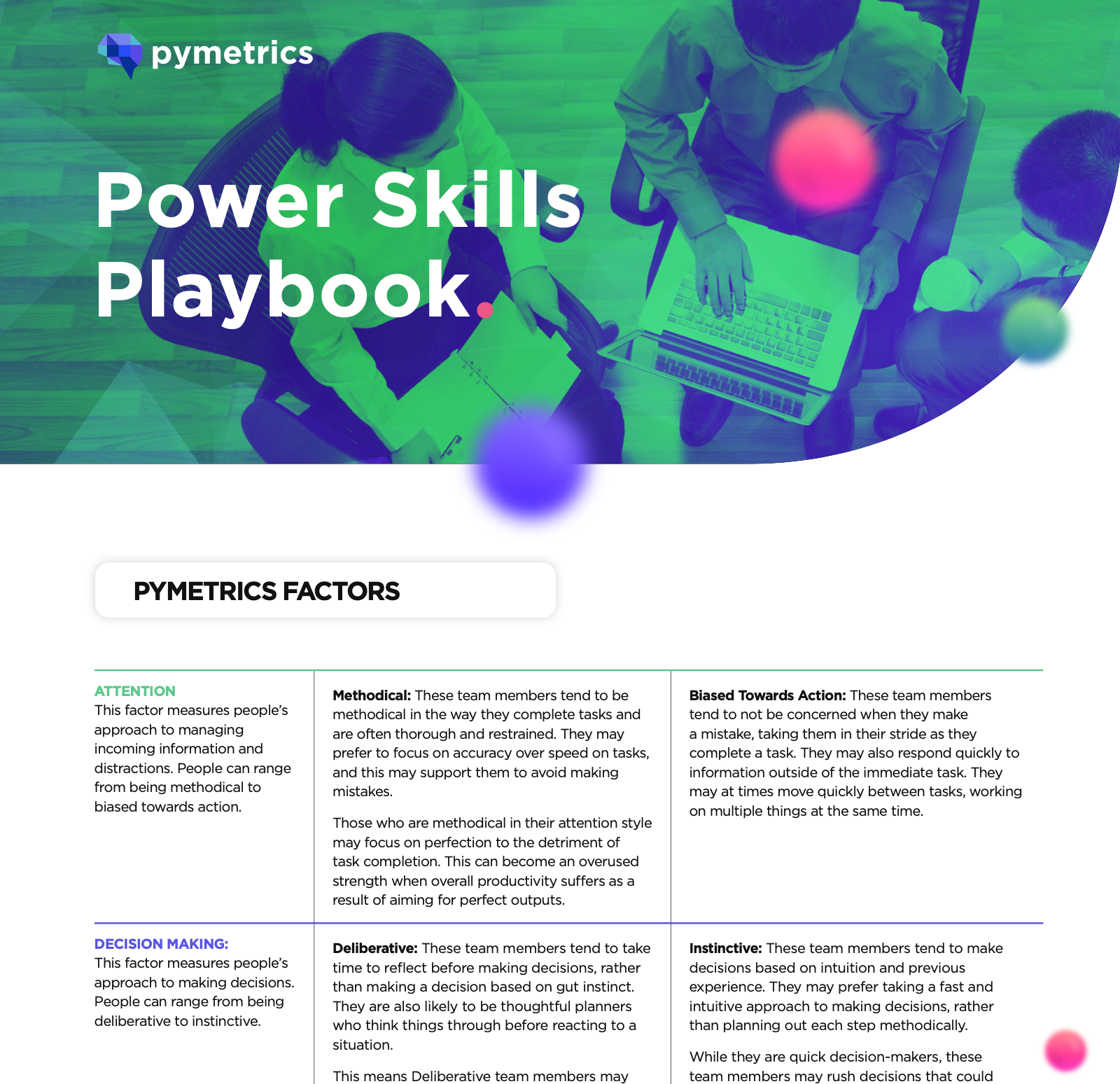We’re excited to announce that pymetrics has been acquired by Harver!
Read MoreFor the latest blogs, please visit Harver.






Marie Baldauf-Lenschen, Senior Product Manager at pymetrics, discusses the importance of understanding and leveraging soft skills for data driven workforce management.
Watch the session here.
Many organizations are not using people data as effectively as they would like to in order to manage their workforce. The reason for this is they often have ineffective data that is siloed in different systems. Such data may also often be out-of-date data, lacking insight into candidates’ and current employees’ potential, and bringing about unsuccessful D&I initiatives and practices.
Soft skills are made up of cognitive, social, and emotional attributes. pymetrics evaluates soft skills such as decision making, focus, effort, risk tolerance, attention, and many more with our 12 gamified assessments. Soft skills relate directly to people management because they reveal the DNA of your workforce.

Soft skills are key to understanding not only the inherent attributes of the people within your workforce, but also their performance and retention as well. The three areas pymetrics offers for workforce management include learning and development, organizational development, and engagement and diversity.

One of pymetrics’ clients in the financial services industry was interested in improving performance and retention across call center roles, through a custom L&D program. Using pymetrics’ Workforce Insights from the top performer model, the client was able to construct a uniquely-tailored program. As a result, they were able to target teams for success, identify gaps in the workforce, and receive customized training exercises to understand how to address any major gaps.
Develop data-driven L&D plans by working on the gaps identified by Workforce Insights by implementing methods from the Power Skills Playbook.

The Power Skills Playbook is a framework created by pymetrics’ IO Psychologists to encourage organizations to make better L&D decisions using soft skill insights on their workforce. This playbook focuses on three key areas of your workforce DNA.
1. Learning styles - how behavior may influence learning style and the type of work environment they may be best suited for?
2. Teamwork - what works well when team members behave similarly vs. differently and what are best practices to improve collaboration?
3. Development strategies - what strategies can people adopt to help adjust their behavior from one side of the spectrum to another?
To learn more about how to manage your workforce with data-driven insights, be sure to check out the on-demand session here.